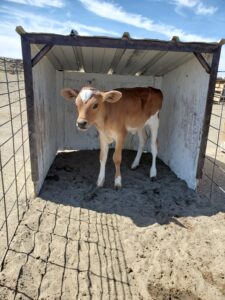The Difference Between an Intolerance Versus an Allergy
Knowing the difference between a food intolerance versus a food allergy is important. There are various food groups that we must consume to ensure our bodies get the necessary nutrients it needs. These food groups include, but aren’t limited to, vegetables, whole grains, proteins, and dairy. Having a food intolerance doesn’t necessarily mean we must rule out an entire food group like you would an allergy, but instead, find a way to consume these food groups with ease on our digestive system.
If you experience symptoms like gas, nausea, or bloating when consuming dairy, it could indicate that you are lactose intolerant. Luckily, because intolerance isn’t an allergy, there are still ways you can consume the same dairy you know and love without compromising on taste or nutritional value.
What Does Being Lactose Intolerant Mean?
Our small intestines create an enzyme called lactase. Lactase helps break down lactose, a sugar made of glucose and galactose found specifically in milk products. When our bodies don’t produce the amount of lactase necessary, it’s difficult or almost impossible to digest dairy products. The good news is that you can take different measures to better aid your digestive system when consuming lactose.
Lactose-Free Milk
For those lactose intolerant, lactose-free milk is the best alternative to regular dairy products. The process of making lactose-free milk differs depending on the brand you buy and is typically done by two methods. One method used is separating the lactose into two different sugars, glucose and galactose, and adding lactase. By adding lactase, those who are lactase deficient can digest dairy easier. The second method used to make lactose-free milk is completely filtering out the lactose.
Joyfully Dairy
Eliminating dairy from our diets can result in a lack of protein, calcium, and other essential nutrients your body needs. And luckily, having an intolerance to dairy doesn’t mean you can’t enjoy all the delicious delights of dairy like yogurt, cheese, or ice cream. Many lactose-free dairy products can be found in the grocery store’s aisles, like cheese, creamers, ice cream, sour cream, yogurt, and butter. If you are lactose intolerant or are sensitive to dairy products, try consuming lactose-free dairy products for easier digestion.
Additionally, opt for dairy products that are naturally low in lactose, these products are often easier to digest. Natural cheeses such as cheddar, colby, monterey jack, mozzarella, swiss, and small servings of cottage cheese, ricotta cheese, and cream cheese are low in lactose. While yogurt does have lactose, yogurt’s live and active cultures help digest the lactose, making it easier to tolerate. There is also less lactose in Greek yogurt because of the straining process, so that’s another option. Butter contains minimal lactose, so cooking with it in small amounts may be well tolerated.
If you are lactose intolerant, there are still ways you can consume dairy and get the nutrients your body needs.



